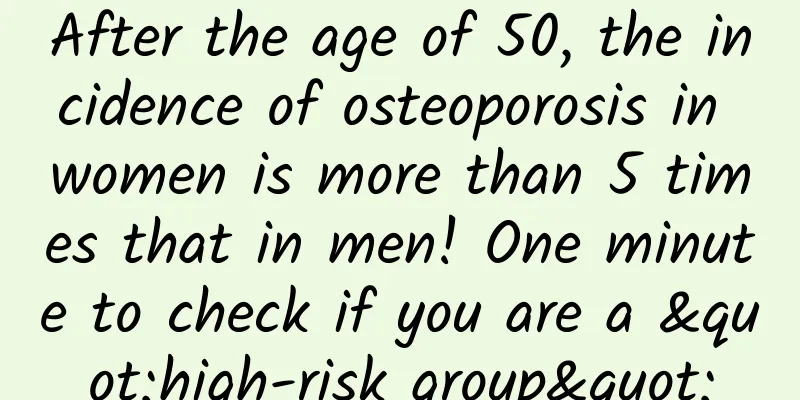What are the effects of traditional Chinese medicine roasted Polygala?

|
In daily life, we often hear friends who are under long-term high pressure complain about their poor sleep, which causes them to feel tired the next day and unable to devote themselves to work and study better. Such a vicious cycle greatly reduces their work and study efficiency. Therefore, most of them will take the traditional Chinese medicine roasted Polygala to relieve insomnia. So what are the effects of the traditional Chinese medicine roasted Polygala? Let us take a look at it in the following time. Nature and flavor: pungent, bitter, warm. Meridians: Enters the heart, kidney and lung meridians. Function: palpitations, forgetfulness, carbuncles, ulcers and swellings, cough with sputum, insomnia and nightmares. Clinical application: 1. Used to calm the mind. It is used to treat irritability, mental confusion, palpitations, and insomnia caused by stagnation of heart qi or deficiency of heart blood, and congestion of phlegm. It can be seen in neurasthenia or insomnia after illness. It is used for its ability to relieve depression and calm the mind, but it is ineffective when used alone, and needs to be combined with Poria, Ziziphus jujuba seeds, etc., such as Guipi Decoction (see under Longan Meat), Yangxin Decoction (see under Poria), and Yuanzhi Decoction. 2. It is used to resolve phlegm and treat cough and wheezing caused by cold phlegm, but its effect is relatively weak and needs to be combined with Fritillaria cirrhosa, Pinellia ternata, Poria cocos, etc. Appendix 1: In the past, some people believed that Polygala tenuifolia could improve the essence and strengthen the will, and cure forgetfulness, but in fact, Polygala tenuifolia has no such effect. Our predecessors have already refuted this, saying that Polygala tenuifolia "can be used to clear phlegm and promote qi, but it cannot improve the essence and strengthen the will." Dosage: 1~9g, most commonly 4.5g. Excessive amounts can cause vomiting. Prescription example: Yuanzhi Decoction (Zhengzhi Zhunsheng): 4.5g each of Polygala, Astragalus, Angelica, Ophiopogon (core removed), Ziziphus jujuba seeds, Dendrobium, 9g Codonopsis, 2.1g Poria, 1.5g Licorice, decocted in water. Appendix 2: Xiaocao is the above-ground part of Polygala tenuifolia, and its leaves are mainly used. Its properties are roughly the same as those of Polygala tenuifolia. It is used in ancient prescriptions, but modern prescriptions all use Polygala tenuifolia, not Scutellaria baicalensis. The above paragraphs introduce us in detail some of the effects and functions of the traditional Chinese medicine roasted Polygala tenuifolia. I believe that as long as friends have read the above content carefully, they will have a deeper understanding and more proficient mastery of these effects. But I still want to say one more thing. No matter how busy we are at work, we still have to arrange our work and rest time reasonably so that our brain can get enough rest. |
>>: What are the effects of moxibustion of Polygala?
Recommend
What are the effects and functions of the little devil fork?
The small devil fork is also often called deer ho...
Many people are wrong! Garlic scapes vs. garlic sprouts, which one is right?
The Chinese names of plants are like refined code...
The efficacy and function of fermented glutinous rice
Everyone is familiar with fermented glutinous ric...
What are the health-preserving Chinese herbal medicines?
For those of us who lack medical knowledge, we do...
"National Breastfeeding Awareness Day", is breast milk no longer nutritious after 6 months?
Breastfeeding is the best choice for both babies ...
The efficacy and function of Weihan grass
Traditional Chinese medicine has a history of tho...
The efficacy and function of Bauhinia
Bauhinia is a medicinal herb that is quite common...
According to the quantum tunneling effect, if someone always wants to pass through a wall, what is the probability of success?
This article is based on answering a question fro...
How do we control the rocket after it's launched?
I said before that rockets and carrier rockets ar...
Can drinking milk before bed really help you sleep better? After reading this, I realized that I have been drinking it for nothing for so many years
Rumor: Drinking milk before bed helps you sleep? ...
The efficacy and function of chard
Capsicum annuum is a traditional Chinese medicine...
What is the current situation in South Africa, which was the first country to report the Omicron strain?
Recent South Africa and other countries report ne...
What are the correct ways to eat ginseng powder?
Ginseng is a common tonic medicine in our lives t...
The expert responses to the “Ten Questions on Science” campaign are here!
The "Ten Scientific Questions" collecti...
The efficacy and function of yellow corydalis
There are many types of Chinese medicine. When we...









